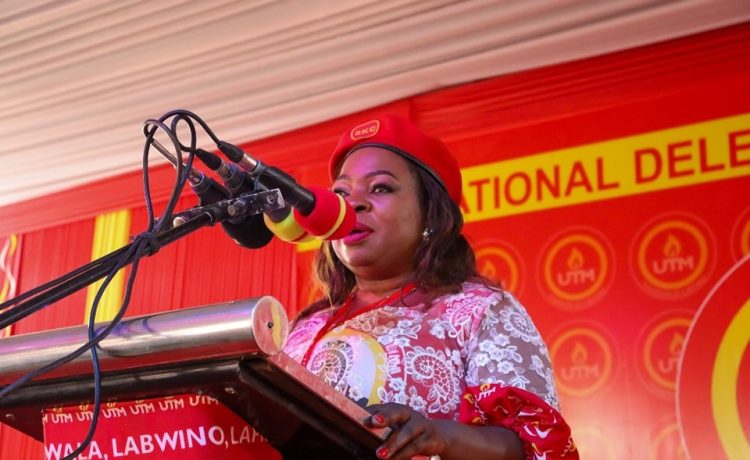In the wake of the untimely passing of Saulos Chilima, the former Vice President of Malawi and the leader of the UTM, the party’s financial foundations appear to be shaking. According to Olipa Muyaba, UTM’s Treasurer General, the party’s financial performance has taken a significant hit, stemming largely from the loss of Chilima—a figure who, until his death, not only inspired loyalty among party members but also attracted considerable support from corporate donors.
In a statement made during the ongoing UTM elective convention in Mzuzu, Muyaba has revealed that the UTM has had to rely on a handful contributions from its members and significant donations from both local and international sources. She reflected on past successes in fundraising efforts—highlighting that in 2019, when Chilima was at an epic of his political theatrics, the party amassed K2.1 billion, followed by K1 billion during the 2020 re-election period. More recently, during the 2021 by-elections, UTM managed to mobilize K189 million.
Muyaba has further disclosed that towards the party’s convention donations including contributions by candidates and party members has totaled a sum of K350 million, showcasing the party’s reality of funding following Chilima’s death, as this figure pales in comparison to the previous financial vigor shown under Chilima’s leadership.
A closer look at the dynamics that underpin UTM’s financial challenges reveals a troubling shift in corporate donor confidence. The late Chilima was not only the face of UTM but also a linchpin in the party’s dealings with business moguls. Among the most notable was Zunneth Sattar, whose financial underwriting was heavily intertwined with the promises of kickbacks and favorable agreements. With Chilima now absent, the party appears to have lost its allure for corporate entities hoping to reap financial rewards through political patronage.
Sattar, a figure embroiled in corruption scandals and allegations of facilitating under-the-table dealings, had established a symbiotic relationship with Chilima who had been State Vice President in two different administrations. The dynamic provided support for UTM while simultaneously ensuring that Sattar’s investments were secured through political favors. With Chilima’s death, many in the business community are reassessing their commitments to the party, understanding that the personal connection they once had with the former leader has now dissipated.
Analysts suggest that UTM’s financial woes could be exacerbated by the current political climate, where transparency and accountability are increasingly demanded by the public and stakeholders alike. Corporate donors are now more cautious, realizing that the risk associated with backing a party in limbo is far greater without a commanding leader to facilitate mutual benefits.
As Muyaba stated, the party’s reliance on member contributions may not suffice to sustain UTM’s agenda without robust corporate backing. If the party cannot rekindle the confidence of its past financiers and establish new connections, it risks entering a vicious cycle of diminishing resources that could ultimately threaten its existence.
The UTM now stands at a crucial crossroads. It must re-establish its financial footing and redefine its relationship with the business community to thrive in a post-Chilima era. The question remains whether UTM can effectively rally its members and attract new sources of funding to navigate these choppy waters or if the party will succumb to the financial difficulties that loom in the absence of its leader.













